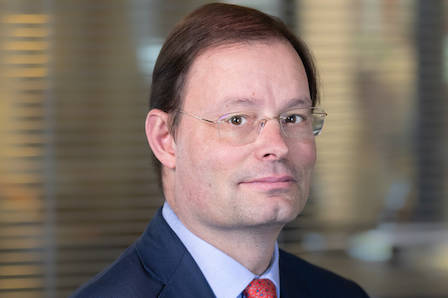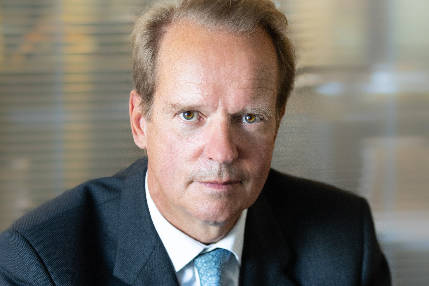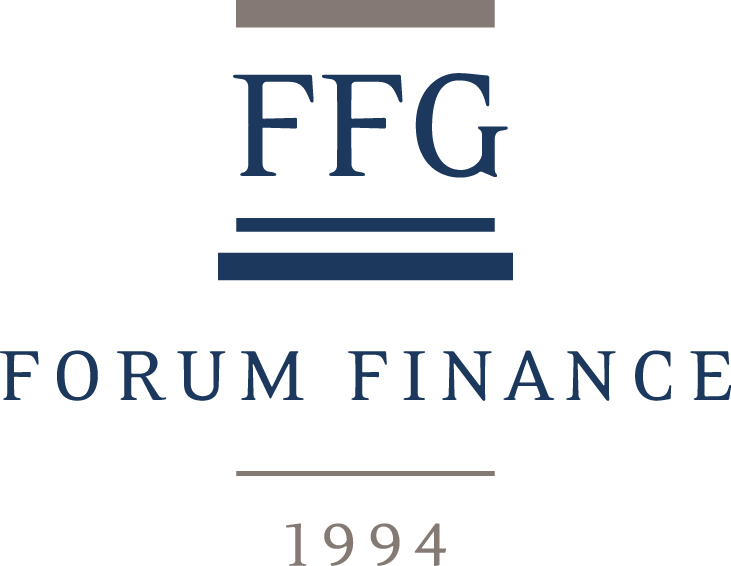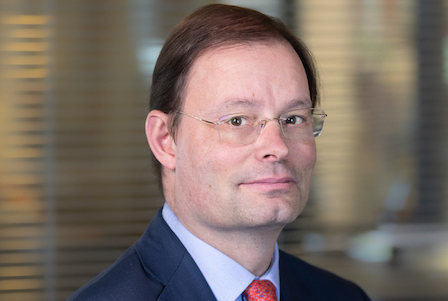Newsletter | February 2023
3 February 2023Newsletter,Financial News
MARKETS MAKE A STRONG START TO THE NEW YEAR
+ 10.7% THE JANUARY RISE OF THE NASDAQ COMPOSITE INDEX
Investment perspective
Financial markets got off to a very positive start in 2023 as investors took the view that the likelihood of a soft landing was rising despite the hawkish tone from the Federal Reserve and the European Central Bank. In this risk-on environment, the vast majority of equity markets posted above-average monthly gains, long-term bond yields decreased, credit spreads tightened, and the US dollar continued to depreciate. The MSCI World index in local currencies climbed by 6.4%, with the Euro Stoxx 50 index rising by 9.7% and the Hang Seng index by 10.4%. The yield on the 10-year Treasury note dropped by 36bps to 3.51%, with US and European high yield credit spreads contracting by 49bps and 68bps respectively. Other strong gains were also observed on industrial metals, as a result of the anticipation of renewed demand from China, and on the price of gold. Maybe a little surprisingly, oil prices ended the month lower, despite the boost from the reopening of China, while gas prices continued to slide at a fast pace.
At the time of writing, the Federal Reserve has just hiked its Fed fund rate by 0.25%, as fully anticipated. The more relevant outcome of the FOMC meeting were the comments by the Fed’s chair, Jerome Powell, on the future path of the Fed’s policy. Powell repeated that more rate increases were needed and that rate cuts in the second half of the year were unlikely. This goes against markets’ expectations for two rate cuts by the end of 2023. What was more surprising was that Powell did not push back more against the recent easing of financial conditions, leading markets to extend their early-year rally, with equities ending the trading session higher and bond yields declining. The ECB and the Bank of England also matched market expectations by hiking interest rates by 0.5%. The ECB signaled its intention to raise interest rates by another 0.5% in March and will then evaluate its policy depending on data. As was the case after the Fed’s decision, markets are continuing to rally, with bond yields dropping quite noticeably.
Investment strategy
At the onset of 2023, our asset allocation is composed of an underweight equity exposure, an allocation to fixed income which is close to neutral and an overweight exposure to hedge funds. Taking account of the strong performance of equities in January, we are sticking to this asset mix for the time being. We fear that markets could be overconfident in their dovish outlook relative to monetary policies and to the path of earnings. With bonds offering positive yields once again, we believe that it makes sense to hold more balanced portfolios and no longer to rely just on the equity asset class to generate portfolio performance. It is also reassuring that the current valuations of some of the traditional assets offer a better starting point for future portfolio returns than a year ago, when only a few of them could be considered cheap. Global value stocks, emerging and European equities, as well as investment grade credit are some of the assets that offer attractive valuations.
For non-USD denominated portfolios, our allocation to the US dollar remains underweight but we prefer to wait before reducing it further. From a medium to long-term perspective we would expect the dollar to depreciate but it continues to offer defensive qualities were markets to turn.
MARKETS INCREASINGLY POSITIONING FOR A SOFT LANDING SCENARIO
Portfolio Activity/ News
January was a strong month for the portfolios. With both bond and equity markets rising simultaneously, the majority of funds contributed to the performance, as to be expected. European Value equities, the metal mining fund, the global technology fund, Chinese equities, and the US Value fund provided the best contributions within the equity asset class. The only equity detractor was the healthcare fund, as the more defensive sectors such as healthcare, consumer staples and utilities ended the month lower. The best performers in the fixed income asset class were emerging market corporate bonds and the long duration investment-grade fund. In the alternative space, the Global Macro fund provided the best contribution, whereas one of the long/short equity funds, with a barely positive net exposure currently, ended the month with a small loss. The other hedge funds provided only marginal contributions.
Following a tough year for many strategies, we are confident that active managers will be able to generate more alpha in 2023. We would expect market dispersion to be high and to represent a favourable environment for good stock pickers. This extensive dispersion should also be helpful for hedge fund managers, and we are comfortable with our overweight exposure to these alternative strategies.
Download the Newsletter
Investment Perspectives 2023
13 January 2023Investment perspectives,Financial News
Executive Summary
2022 was one of the most challenging years ever for investors
The past year was a brutal one for investors. The tightening of monetary policies was not a surprise, but it proved to be far more pronounced and damaging than anticipated for many asset classes. This fast-paced tightening of monetary policies, due to ongoing inflation pressures, and the war in Ukraine were the main drivers for the significant weakness of markets. China’s zero-COVID policy provided another headwind as its economy fared much worse than forecast. In a risk-off environment, there was hardly anywhere to hide, and this was reflected by the dreadful performance of US Treasuries, considered to be amongst the safest of assets. Volatility in the bond markets reached crisis levels and remained very elevated for most of the year. This stress spilled over to the other asset classes, and the high level of correlation between equities and bonds meant that diversification failed to protect well against portfolio losses.
The breath-taking speed of the Federal Reserve’s monetary policy tightening
2022 will be remembered as the year when the era of extremely accommodative monetary policies finally came to an end. Since the great financial crisis, the major central banks had lowered interest rates to zero, or even into negative territory. Investors had been expecting interest rates to rise and central banks’ balance sheets to contract in 2022, but they were not prepared for what took place effectively. The Federal Reserve’s shift from a very accommodative monetary policy to a very restrictive one took place in a matter of months only, as the size of rate increases quickly rose from 0.25% in March to 0.75% at four consecutive FOMC meetings between June and November. The US central bank hiked its rates by a total of 4.25% in 2022 to a range of 4.25% to 4.50%, with other major central banks taking a similar path, even if not at the same pace. The latest interest rate decisions and communications from the main central banks have confirmed their hawkish stance and determination to bring down inflation.
Investors will remain focused on inflation trends and geopolitics
GDP growth is expected to slow in 2023, with a high risk that the global economy could slide into recession as growth expectations for the United States and Europe are very low or negative. Much will depend on the pace of deceleration of inflation and the trajectory of interest rate increases. The task of central banks around the world is extremely challenging and the risks of a damaging policy mistake are much higher than average. Economic prospects could be boosted if China finally manages to reopen its economy successfully. Geopolitical threats remain elevated. There are many sources of tensions across the world, but one cannot exclude the possibility of some unexpected positive developments even if we are not holding our breath.
Amid elevated uncertainty we maintain a cautious asset allocation
The tightening of monetary policies has erased some of the markets’ distortions and excesses of the previous years, meaning that fundamentals should matter more now that the era of easy money has come to an end. Valuations have improved for most asset classes, but uncertainty remains prevalent on many issues. Despite last year’s derating, equities still face headwinds. That largely explains why we have maintained our overweight allocation to alternative strategies and have increased our fixed income exposure recently in view of its improved risk/return profile.
Table of contents
- EXECUTIVE SUMMARY
- 2022: REVIEW OF OUR INVESTMENT THEMES
- 2022: ECONOMIC & POLITICAL DEVELOPMENTS
- 2022: THE FINANCIAL MARKETS
- 2023: ECONOMIC OUTLOOK
- 2023: FINANCIAL MARKETS' OUTLOOK
- 2023: ASSET ALLOCATION
Download the Investment Perspectives
Handover at Forum Finance
27 September 2022Press Releases,Press Releases & Sponsoring
Handover at Forum Finance
Geneva, 28th September 2022 – Geneva-based independent asset manager The Forum Finance Group SA has announced the appointment of Hippolyte de Weck as CEO as of 1st October 2022. He replaces Etienne Gounod, who becomes Chairman of the Board of Directors. This change of generation at the head of the company is part of the governance system that Forum Finance put in place many years ago to organise the gradual retirement of managing partners from the age of 65. While many independent asset management companies will not be able to obtain their FINMA licence before the end of December, Forum Finance offers a solid entrepreneurial framework to wealth managers looking for a structure that will allow them to continue to carry out their activities.

Hippolyte de Weck joined Forum Finance as a managing partner in 2011. Prior to that, he worked within the UBS Group for 17 years, holding various positions in the areas of bond issuance, risk management and private wealth management in Frankfurt, Zurich and Geneva. He succeeds Etienne Gounod as CEO, who is stepping down from the Executive Committee to become Chairman of the Board of Directors.

Etienne Gounod explained: “Our internal governance rules stipulate that at the age of 65 managing partners gradually retire to make room for the next generation. After 13 years as CEO and 19 years as managing partner, it is time for me to hand over the operational management of Forum Finance and focus on the long-term strategy of the company as Chairman of the Board.”
A solid structure and governance
With 28 years of steady growth, Forum Finance has proven its durability. Its robust and transparent governance ensures the integrity of its leadership and allows it to welcome new partners to ensure its continuity. With CHF 2 billion under management, it has sufficient resources to finance its future growth. This solidity is further underlined by its FINMA CISA licence, which allows it to extend its range of services to the management of investment funds and pension products. Finally, registered with the SEC, Forum Finance can also look after American clients.
Offering a compelling solution to wealth managers wishing to continue their activities
In view of the regulatory upheaval that the Swiss independent asset management industry will experience in the coming months, Forum Finance intends to play an active role in the upcoming restructuring process, in particular by offering a credible framework for wealth managers whose company will not obtain the FINMA licence, mandatory from 1st January 2023.
Hippolyte de Weck, CEO, added: “The warnings and figures published by FINMA in August clearly indicate that hundreds of Swiss asset management companies will not obtain this prized licence in time. Our size, the structure we have already put in place, our development prospects and the possibilities we offer to access our equity make Forum Finance a particularly convincing solution for wealth managers looking for a new environment in which to continue their activities.”
For additional information, please contact:
Egon Vorfeld
The Forum Finance Group SA
T: +41 (0)22 552 83 00
E: vorfeld@ffgg.com
ffgg.com
Ricardo Payro
Payro Communication Sàrl
T: +41 (0)79 460 57 74
E: :rp@payro.ch
payro.ch
About Forum Finance
Founded in 1994 in Geneva, Forum Finance offers private banking and asset management services to a high-end global clientele. It has 25+ employees who manage and supervise more than CHF 2 billion in assets. The company is regulated and supervised by the FINMA under the CISA licence and is registered with the SEC as investment adviser.








